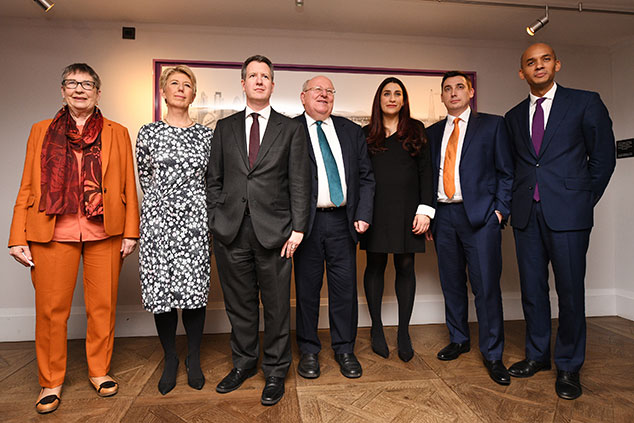
The new breakaway centrist grouping launched on Monday by a group of seven moderate, pro-EU Labour MPs – calling itself The Independent Group – probably doesn’t have a huge chance of success. Not much brand recognition, a tired backward-looking message, not many customers and no real way of distributing the product to the customers. If it was a product launch at Unilever or Nestlé, no one would be feeling terribly optimistic about its prospects.
But even if it doesn’t ever amount to very much in terms of votes or power, it could still perform a useful function.
The Ukip of the centre
As Emmanuel Macron in France, the Five Star Movement in Italy, and Ukip in this country have all shown, new parties can find space in a volatile political climate. Labour has shifted a long way to the left and there are a lot of people who feel passionately about remaining in the European Union, so there is a market waiting to be captured. The question is whether the new party can stake out that territory effectively with new policies and build an organisation that can win seats.
Here are three policy ideas to start with.
1. Phase out tax credits
Gordon Brown’s big idea as chancellor was to make sure work paid and to get people off welfare by topping up their wages with money from the government. It was well intentioned, and certainly helped create record levels of employment. But it also ended up subsidising low-paying employers.
When that was combined with free movement of labour, allowing unlimited migration from a relatively poor eastern Europe, the UK turned into a machine for generating millions and millions of low-paid, low-productivity jobs. That was good for the jobs statistics, but it didn’t do much for overall living standards. The credits should gradually be phased out – and the UK should concentrate instead on creating higher-paid, higher-productivity jobs.
2. Reintroduce regional tax rates
The UK has serious imbalances between its regions, with wealth and growth far too concentrated in London and the southeast.
All the evidence from the rest of the world tells us that the only policy that will really make a difference to this is tax. In the US, for example, there are meaningful differences between income and personal taxes from state to state. And guess what? Lots of jobs and people have moved to the lower-tax states. Sure, New York and Los Angeles remain dominant for many other reasons, but wealth is spread around.
If Wales and the northeast, for example, had significantly lower income and corporation tax rates, lots of firms would suddenly want to move there. That would be healthy for the economy as a whole.
3. Rip up all tariffs
Amid all the fierce arguments over Brexit we have not managed to get around to asking what kind of trade policy we want after we leave. If the EU put levies on our goods, it will be tempting to match them. Tempting, but futile.
As we leave the EU, the UK will be free to set its own tariffs. How about at zero? On everything. Tariffs are a form of tax on consumers, and a way of shielding inefficient industries from competition, and that doesn’t make sense in the medium term. Amid all the threats of trade wars, the world could use a beacon of free trade.
British politics has lots of taboo subjects that are deemed too difficult to discuss. The health service, for example, the complexity of our tax system, the slightly odd way national insurance has turned into a tax that doesn’t insure you against anything, the need to raise the retirement age massively to cope with ageing populations. A genuinely radical new party could break a few of those taboos and open up the conversation to new ideas. Someone else might end up implementing them – but at least they would finally be on the agenda.